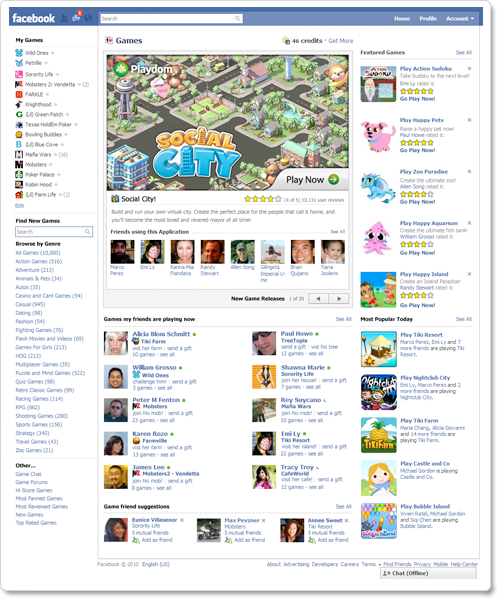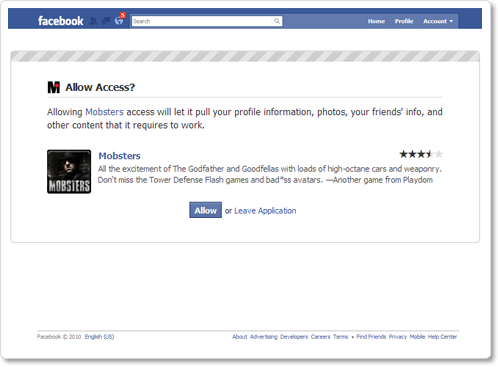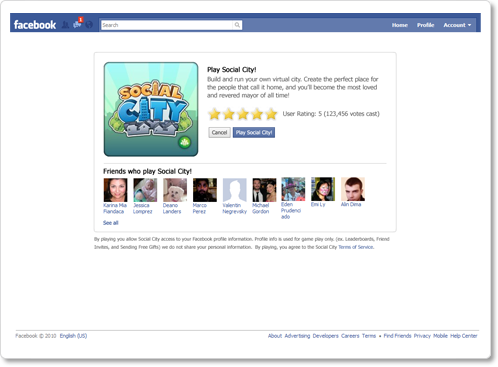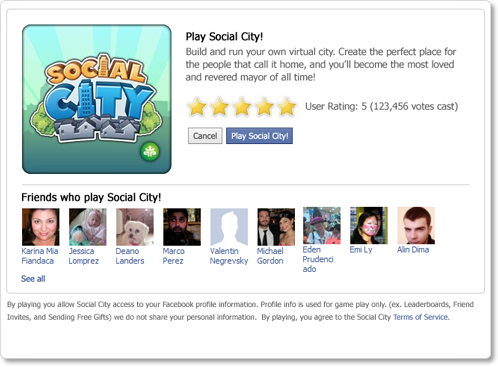Facebook: a Playdom/Disney Interactive Partner
Redesign of the Games Channel, applying Facebook's social graph to social games:

In early 2010 social games were in decline due to Facebook's changes in notifications and requests, which eliminated a significant amount of free advertising enjoyed by social gaming applications. Facebook's changes had a very negative impact on most of the social gaming companies driving large losses in Monthly Active Users (MAUs) in May of 2010.
I worked with Marianne Borenstein, VP Platform Relations & Customer Experience, Playdom to craft a presentation to influence Facebook to make the strategic changes necessary for gaming companies to succeed on the Facebook platform. These were a few of the suggested improvements and design recommendations.
Our top 5 suggestions were:
I did a heuristic evaluation of the Facebook "Allow Page" and found that less than 50% of users were clicking the "Allow Application" button and adding games. To understand why, I did a series of user tests "in the wild" visiting users homes to see how they engaged the allow pages and why we didn't have higher adoption.
I found that many of the users were put off by the the terse industry jargon, many didn't understand why Facebook wanted permission to access profile information they already had, why they needed access to photos and their friend's info. Some didn't think it was OK to give out their friend's info without getting their permission first.
Bottom line, 80+% of users didn't understand that the games on Facebook were not made by Facebook, and they found the allow application pages confusing. It wasn't clear to the users how their information would be used and what it was going to be used for. Basically there wasn't enough information for them to make a clear decision. So many users abandoned the process.
One woman read the Facebook allow page and thought she was actually downloading an application onto her C: drive, so she clicked "Leave Application," citing "I don't have any more space on my hard drive, and if I don't like the game I wouldn't know how to get rid of it." I asked her why she thought she was downloading an application to her hard drive. She said "It says allow application." to her the word "application" was an .exe file that lived on her hard drive like Word, Outlook or Excel.
This is the page she viewed:

This is my redesign of that page:

I removed all the terse and "threatening" language. I also added a large friendly game logo, and added elements promoting the Facebook Social Graph showcasing your friends who are playing this game and the rating they gave it.
Close Up:

Some of our suggestions were implemented right away, others are still in the works. It was a very productive collaboration in the end.









